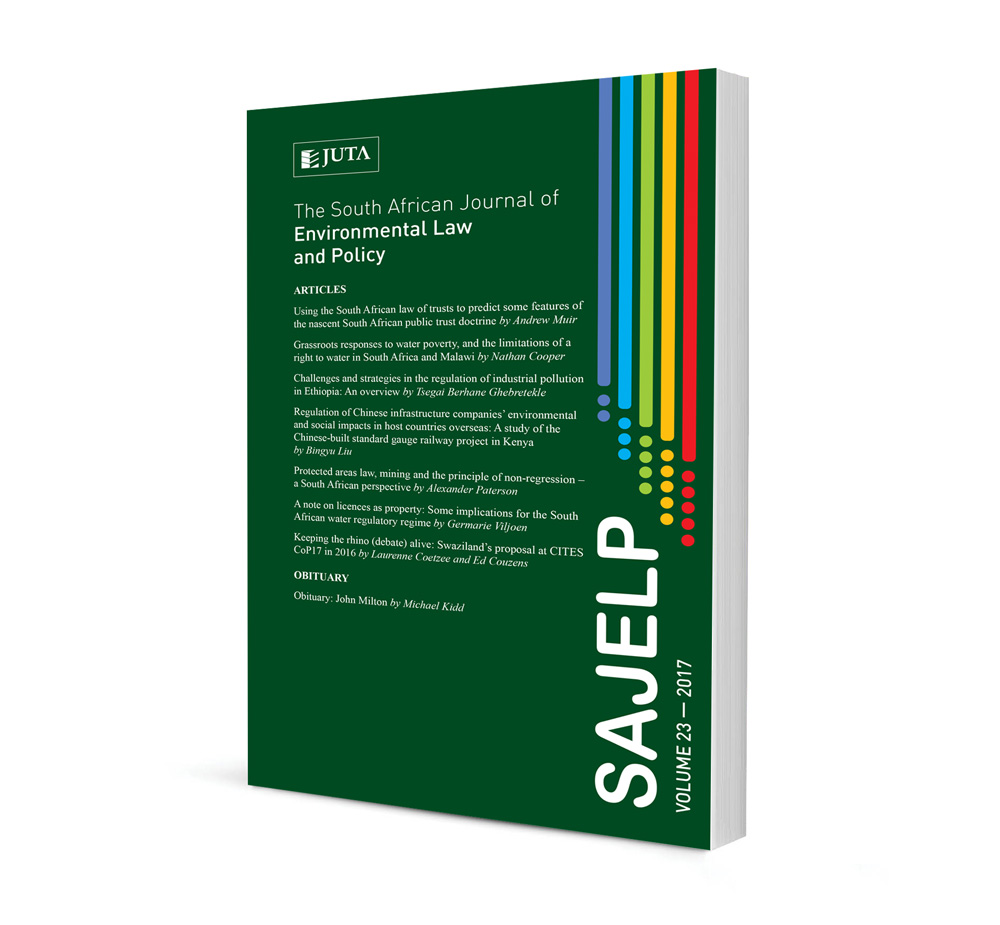
Vertically-challenged? Interrogating intergovernmental coordination in Kenya’s municipal solid waste management (MSWM) for sustainability
Authors: Wambua Kituku, Collins Odote, Charles Okidi and Patricia Kameri-Mbote
ISSN: 2616-8499
Affiliations: BSc (JKUAT) LLB LLM PhD candidate (Nairobi); LLB LLM PhD (Nairobi); BA (Alaska) MA PhD (Tufts); LLB (Nairobi) LLM (Warwock) LLM (Zimbabwe) LLD (Nairobi) PhD (Stanford)
Source: South African Journal of Environmental Law and Policy 2020, p. 62 – 104
https://doi.org/10.47348/SAJELP/v26/a3
Abstract
The concept of environmental integration offers a viable paradigm for realisation of sustainability through incorporation of environmental protection considerations in policy and legislation. Pursuing optimal environmental integration between various levels of governance – a concept known as vertical environmental integration (VEI) – is contingent on effective and adequate intergovernmental coordination. Using municipal solid waste management (MSWM) as a reference case, this paper explores the pursuit of VEI through intergovernmental coordination in Kenya. The paper argues that the prospects of entrenching VEI are undermined by inadequate and incongruent intergovernmental coordination mechanisms and strategies as well as by the lack of clarity in distribution of regulatory responsibilities in MSWM between the national and county levels of government. This is despite the adoption of a transformative Constitution in 2010 with a focus on devolution that emphasises coordinated and consultative relationships between the two levels of government. Lessons from South Africa offer prospects for improving intergovernmental coordination to achieve sustainability in MSWM.